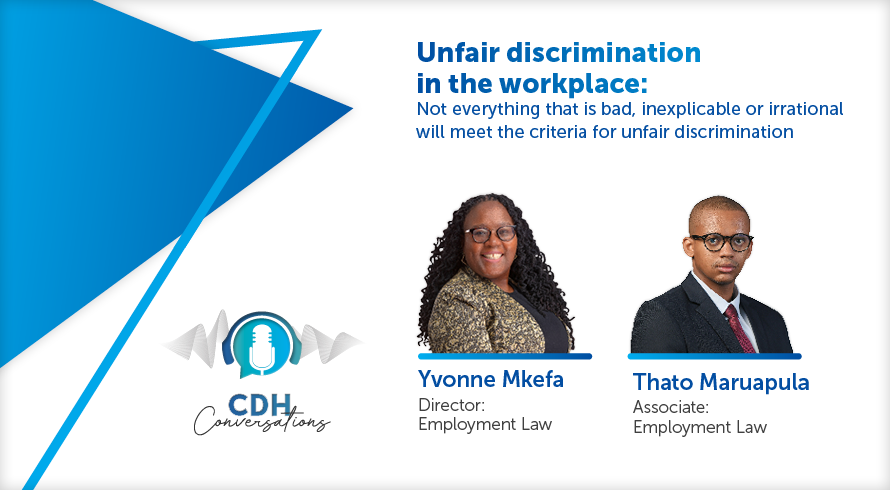The High Court “waives” goodbye to an application for a waiver of minimum distribution requirements for public benefit organisations
At a glance
- The Pretoria High Court heard a review application brought by the trustees of the Chevrah Kadisha Capital Trust against the South African Revenue Service (SARS) regarding the waiver of minimum distribution requirements.
- The trust, registered as a conduit public benefit organisation (PBO), requested SARS to waive its obligation to distribute funds, aiming to accumulate a capital base for future use in funding public benefit activities.
The trust sought to review the South African Revenue Service’s (SARS) decision to decline its request in terms of 18A(2A)(b)(i) of the Income Tax Act 58 of 1962 (ITA) to waive the minimum distribution requirements provided by the section.
The trust is a public benefit organisation (PBO) registered for tax exemption with SARS in terms of section 30 and section 18A of the ITA. There are two kinds of PBOs envisaged in the ITA, known as active PBOs and conduit PBOs. Active PBOs carry on public benefit activities such as those listed in Part II of the 9th Schedule, while conduit PBOs are created with the sole function of providing funds to active PBOs. The trust operates as a conduit PBO that provides funds to an active PBO, the Chevrah Kadisha Group, an association with eight affiliated organisations that carry out public benefit activities in the Jewish community.
Application for waiver
Section 18A of the ITA provides a tax incentive for donors of PBOs, which allows for donors to claim a deduction from their taxable income.
Section 18A(2A)(b)(i) of the ITA specifically regulates the administration of such donations received by conduit PBOs, and provides that:
“the organisation will within 12 months after the end of the relevant year of assessment distribute or incur the obligation to distribute at least 50% of all funds received by way of donation during that year in respect of which receipts were issued …”
It is evident that the legislator intended that section 18A(2A)(b)(i) of the ITA would serve to ensure that at least 50% of donations to conduit PBOs are in fact distributed within 12 months after the end of the year of assessment in which a donation was received, in order to fund public benefit activities, as opposed to being held indefinitely.
However, the proviso to section 18A(2A)(b)(i) of the ITA does present the option for a conduit PBO to make application to the Commissioner for SARS to waive the obligation to distribute any funds as follows:
“Provided that the Commissioner may, upon good cause shown and subject to such conditions as he or she may determine, either generally or in a particular instance, waive, defer or reduce the obligation to distribute any funds, having regard to the public interest and the purpose for which the relevant organisation wishes to accumulate those funds…” (our emphasis added)
The trust made an application to the SARS Commissioner requesting that the trust’s obligation to distribute funds in accordance with section 18A(2A)(b)(i) be waived indefinitely, in order to allow the trust to build up a capital base that would grow through large donations made by wealthy donors, asset growth and investment income.
The trust’s reasons provided for in its application for waiver of its distribution obligations detailed various factors, including a decrease in donation income, an increase in expense growth and an increase in inflation. The trust indicated in its application that it would be necessary for it to accumulate funds in order to create a viable fund which would target and retain significant donations and investment returns, so as to accrue a large enough capital base that would be sufficient to fund the future of the Chevrah Kadisha Group.
SARS’ response
SARS denied the trust’s request, stating that the distribution requirement of 50% will not be waived if the purpose is to provide a “general endowment or capital reserve fund”, as this would not be considered an approved public benefit activity in terms of section 18A of the ITA.
Additionally, SARS indicated that the Commissioner would only consider waiving the obligation to distribute 50% of funds received by donations if the funds were being accumulated for a specific capital project that qualified as a public benefit activity approved in terms of section 18A, such as building an orphanage, which was not the case for the trust.
The review
The trust was not satisfied with the decision from SARS and applied to the High Court for SARS’ decision to be reviewed in terms of the Promotion of Administrative Justice Act 3 of 2000 (PAJA). The trust asserted that the decision by SARS stood to be reviewed for the following reasons:
- the High Court is as well qualified as SARS to make the decision;
- the outcome is a foregone conclusion; and
- SARS acted in bad faith by withholding concerns about the trust’s application.
In considering the trust’s application for review, the court found that SARS’ reasoning erred in law, as SARS had misinterpreted section 18A(2A)(b)(i). SARS’ assertion was that the purpose of the trust was “to build up a general endowment or capital reserve”, while the court held that the trust’s application for waiver, and trust deed, made it clear that the sole purpose of the trust is to fund PBOs that carry on “approved public benefit activities for the purposes of section 18A”. The High Court held that, “the provision of a ‘general endowment or capital reserve fund’ is the mechanism for achieving that purpose; it is not the purpose itself”.
It was further held that SARS’ statement that the Commissioner would consider waiving the obligation in the event that the funds were accumulated for a specific capital project which qualifies as a section 18A PBO,
was a misconception of the purpose of the trust. The purpose of the trust is to use income derived from the capital fund to fund the ongoing operational costs of the Chevrah Kadisha Group, and to fund PBOs that conduct approved public benefit activities for the purposes of section 18A.
The decision
The High Court held that SARS’ decision was materially influenced by an error of law, as envisaged in section 6(2)(d) of PAJA, and therefore stood to be reviewed and set aside. Notwithstanding the fact that the court decided that SARS had made an error in law, the court held that the outcome of the application for waiver was not a foregone conclusion as there was no evidence that SARS had acted in bad faith, and in line with the doctrine of separation of powers, the High Court was not as well qualified as SARS to make the decision.
The court refrained from making an order substituting SARS’ decision, as it was of the view that the Commissioner has specialised knowledge which would aid SARS in considering the various other factors that could influence the decision to grant or deny the trust’s request for a waiver. The court consequently remitted the decision to the SARS Commissioner for reconsideration and imposed a strict deadline for the delivery of a fresh decision, accompanied by full reasons, within 30 days of its order.
In conclusion, it is worth noting that the doctrine of separation of powers is respected by the courts in matters concerning SARS and its administration, and legislative intent in relation to PBO matters, in order to ensure that a balance is struck between community gain and benefit to the fiscus.
The information and material published on this website is provided for general purposes only and does not constitute legal advice. We make every effort to ensure that the content is updated regularly and to offer the most current and accurate information. Please consult one of our lawyers on any specific legal problem or matter. We accept no responsibility for any loss or damage, whether direct or consequential, which may arise from reliance on the information contained in these pages. Please refer to our full terms and conditions. Copyright © 2025 Cliffe Dekker Hofmeyr. All rights reserved. For permission to reproduce an article or publication, please contact us cliffedekkerhofmeyr@cdhlegal.com.
Subscribe
We support our clients’ strategic and operational needs by offering innovative, integrated and high quality thought leadership. To stay up to date on the latest legal developments that may potentially impact your business, subscribe to our alerts, seminar and webinar invitations.
Subscribe




